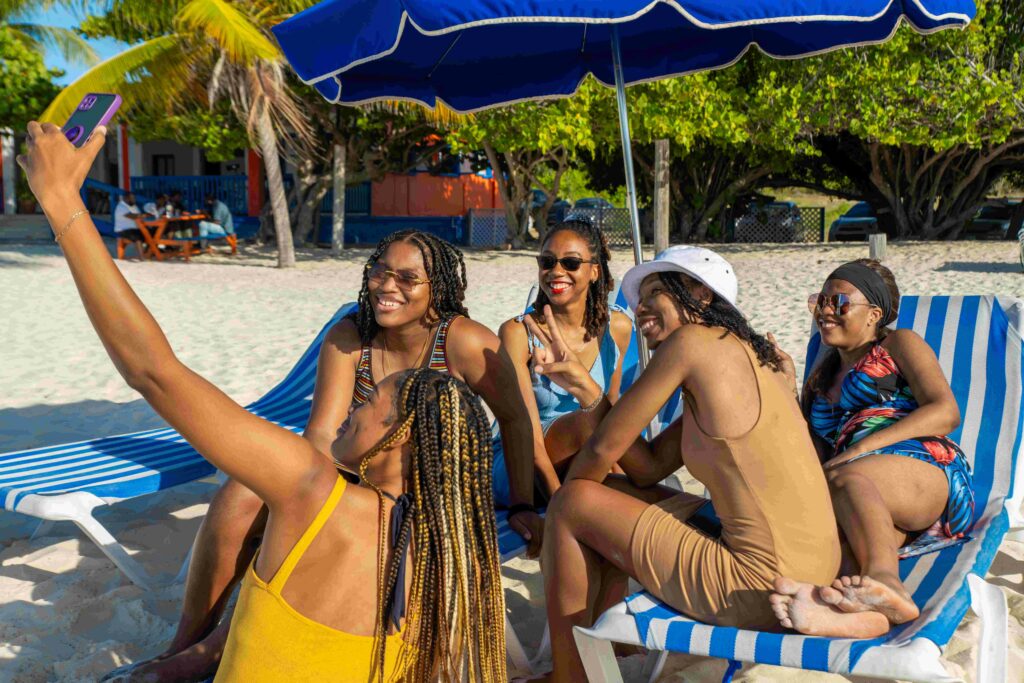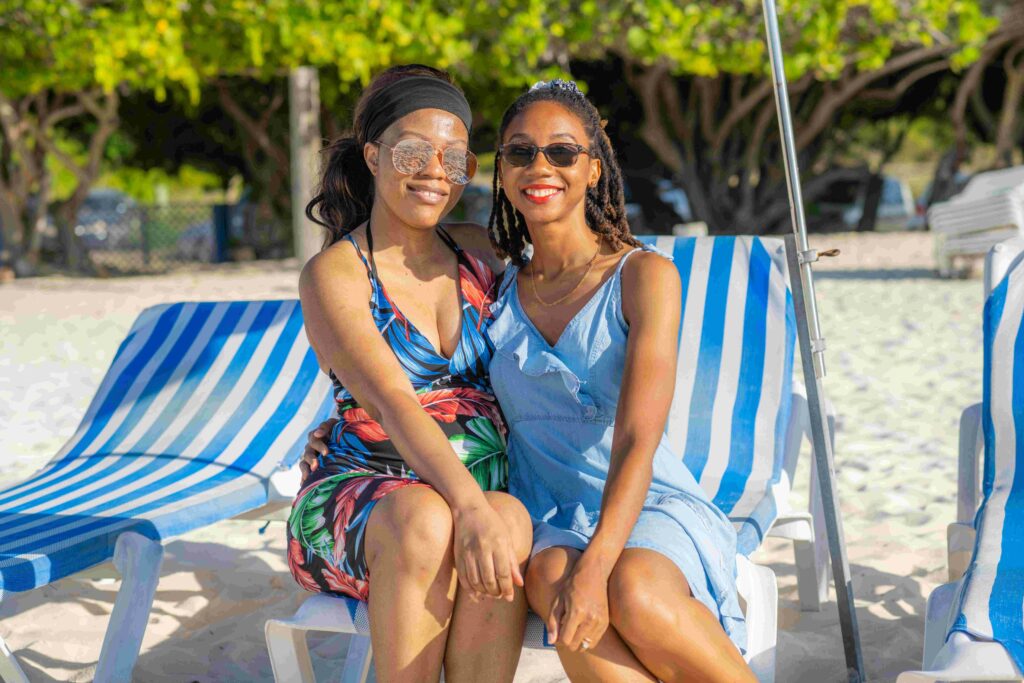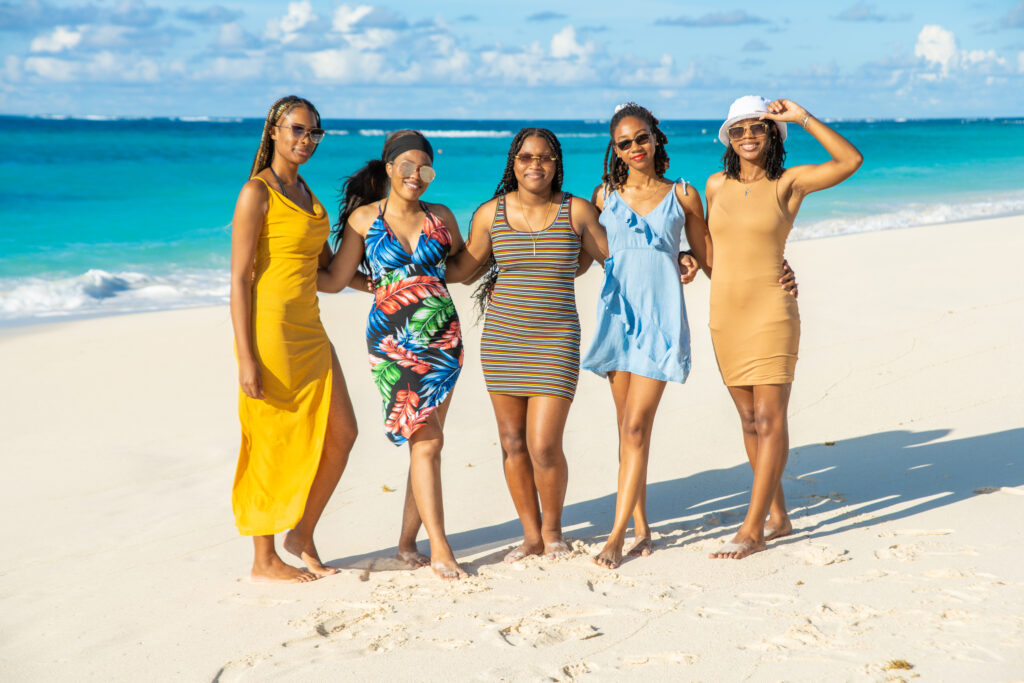Imagine living a life filled with laughter, shared secrets and countless adventures alongside your best friend. You’ve built an unbreakable bond, understanding each other like no one else. But one day, a surprising revelation unfolds, transforming your friendship into a connection even deeper than you could have imagined – you discover that your best friend is, in fact, your cousin. This is exactly what happened to me in high school and, in another twist of fate, I also recently discovered that that same friend’s husband also happens to be my cousin.
My mind was blown. I thought, ‘Where are all these relatives coming from?!’ But it turns out, I’m not alone on this as many Anguillians often find themselves in similar scenarios. Friends with a Gumbs? That’s probably your cousin. Your co-worker is a Hodge? He may be your uncle. Your mother’s old classmate? Yup, that’s probably your long-lost auntie.

Anguilla is an island not just known for its pristine beaches and turquoise waters, but for its unique sense of community and the strong bonds that exist among its residents. These bonds are, of course, due in part to a shared history. Our 35-square-mile paradise is home to a variety of surnames; the three most common being Richardson, Hodge and Gumbs. Dr Timothy Hodge, founder and president of the Anguilla Genealogical Society, traces their origins back to Europe, namely, England, Ireland, Scotland and Wales, ‘The original bearers of these names were European settlers in the 17th and 18th centuries.’ Of course, being mainly of African descent, the ancestry of Anguillians is also significantly tied to West African countries such as Ghana, Sierra Leone, Benin and Nigeria. ‘While this can be demonstrated by DNA analysis, it is noted that the African surnames did not survive the Middle Passage. The names of the plantation owners were instead passed down to the enslaved persons who lived on their estates, not necessarily through bloodlines,’ says Dr Hodge. He himself traces his own ancestry back to Governor Arthur John Hodge (1685–1745).
According to Dr Hodge, it is very likely that someone carrying the aforementioned surnames and living in another territory such as St. Kitts, St Martin/St Maarten, the Dominican Republic, the US Virgin Islands or the British Virgin Islands may have Anguillian roots, as Anguillians were commonly known to settle in other islands in past centuries seeking better lives there. So, in the case of my friend’s husband, I stumbled on a family tree that hinted at this unexpected kinship. It turns out his great grandfather was my grandmother’s brother, and when I told him of our family history, he too was shocked and amused. ‘This world truly is too small,’ we thought.

As the truth sank in, our past laughter-filled adventures and deep conversations took on a new significance. The realization that a friend is also a family member breathes new life into the relationship. It’s as if a missing piece of the puzzle has been found, revealing the true depth of the connection cultivated. The bond that was once felt in your heart is now affirmed through blood ties. And perhaps it’s because we develop these ties with each other before we even know that we’re related by blood that we are so welcoming to everyone, even strangers.
In Anguilla, the concept of family extends beyond blood relations. We have a deep-rooted culture of kinship that values close friendships as much as familial ties. Bonds are formed through shared experiences, common interests and mutual support. Visitors are often struck by this genuine warmth and hospitality, as locals go out of their way to make them feel like part of the extended family. They are essentially honorary members of the Anguillian family.

Whether it’s attending local festivals, joining community events or simply striking up conversations at beachside bars, visitors are welcomed with open arms and encouraged to immerse themselves in the local way of life. This is quite possibly one of the strongest things attracting tourists to Anguilla. Here ‘all ah we is one family’, and no other destination can rival the warmth of Anguillian hospitality and friendship. After all, this is what makes us truly Anguillian!
Janissa Fleming is a talented student journalist from Anguilla who specializes in unravelling and harmonizing stories of culture and music. KSharp Photoshoot.




